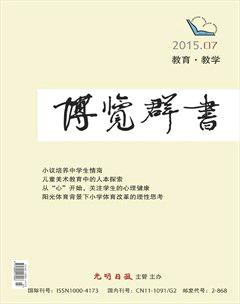“某些动词”+it构成的习惯用语
2015-11-10林萍
林萍
It有一种比较特殊的用法,就是它与某些动词(其中有些是由名词或形容词转化而来的)搭配,构成习惯用语,其词义十分丰富,在文章及口语中常常出现。本文只就搭配方式作归纳。
一、由表示交通工具的名词转化成动词+it表示这种名词的动词功能。如:
1.The railway station is so faraway from here that you had better bus it.
火车站离这儿太远了,你最好乘公共汽车去。
2.As the highway bridge has been damaged by the torrential flood, we have to boat it.
由于公路桥被洪水急流冲坏了,我们只得坐船去。
3.Seeing that the omnibus was crowded to capacity, Madame Curie cabbed it.
由于公共汽车挤得水泄不通,居里夫人坐马车去了。
这类搭配常见还有:to train it(坐火车去),to tram it (坐电车去),to taxi it(坐出租车去)等。
二、由表示人体部分的名词转化为动词+it,表示这种名词的动词的功能。如:
1.My boyfriend missed the last bus and had to foot it home,
我的男朋友没有赶上最后一班汽车,只好步行回家。
2.Leg it as fast as you can.
快跑吧。
这类搭配常见的还有:to face it out(坚持到底,不让步),to face it(面对现实)等。
三、由表示人,动物或事物的名词转化成动词+it表示这种名词的动词功能。如:
1.She queens it over her husband. 她支配着她的丈夫。
2.Gone are the days when imperialists could lord it over the whole world.帝国主义者在全世界称王称霸的日子一去不返了。
3.The actress is starring it in Changsha. 那个女演员在长沙的演出大为卖座。
这类搭配常见的还有:to king it(做帝王,统治,主宰),to pig it(像猪一样生活,过困苦的生活),to dog(打扮起来,摆阔气)等。
四、由形容词转化成动词+it表示这种形容词的动词功能。如:
1.If you go mountaining in such weather, you will have to rough it.如果在这种天气登山,你一定得吃苦头。
2.We had nothing for it but to rough it out.我们没有别的办法,只好面对事实,克服困难。
3.It is difficult for me to find another job, so I have to brave it out.再找工作对我来说很难,我只好硬着头皮干下去。
似的搭配还有:to cool it(冷静下来)等。
五、表示运动意义的动词+it,有的保留原来的动词意义,有的构成新义。如:
1.The supermarket is very near, so you can walk it.超市很近,你可以走去。
2.Go it while you are young.趁你还年轻就努力干吧。
3.He came it too strong.他干得过分了。
这类搭配常用的还有:to tramp it(步行),to go it alone(单干),to go it blind(瞎干),to go it strong on something(熱烈赞许某事物)等。
六、某些常用动词+it。如:
1.Some day I will have it out with him. 迟早我要和他说明白。
2.Do that again and you will catch it.再做那件事,你就要受到责罚。
常用的还有:to get it ,to catch it( 挨骂),to have it (all)over somebody(胜过某人),to let somebody have it(让某人倒霉去)等。
以上的it均是“虚义词”(empty “it”),没有确切含义,作形式上的动词宾语,有的语法家称之为模糊宾语或假宾语。
